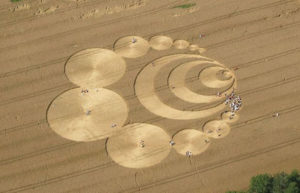What a Gas

Zeppelin: Unleaded
The federal government has maintained a helium storage program since WWI, with the express purpose of making sure that America never falls behind in, um, a zeppelin arms race.
The Federal Helium Program is often viewed as one of the biggest boondoggles the government keeps funding. Both Reagan and Clinton tried to get rid of it. They couldn't have been more wrong, though.
Even apart from the fact that the program pays for itself with the proceeds of the helium it sells to U.S. companies, the helium program has plenty of other benefits to keeping it around.
First off, helium provides 42 percent of the nation's supply of unrefined helium gas. Second, it's already all stored in a huge porous rock formation below the Texas Panhandle, so there isn't a lot in terms of maintenance fees.
Even if we did need to harvest more, it's not that difficult. Among other things, helium is a byproduct of harvesting natural gas in the Midwest. Most importantly, helium is surprisingly essential to industries across the board.
Here's a non-exhaustive list of helium's uses:
- Airships are making a major comeback (see HERE), and they obviously need lots of helium.
- Cryogenic purposes. Not just freezing dead bodies, but cooling the magnets in MRI scanners and other similar uses. Helium makes an extremely effective coolant and is part of the process of making oxygen-hydrogen rocket fuel.
- Creating stable pressurized atmospheres. Deep sea divers often use atmospheric mixes that include helium.
- Arc welding materials that are contaminated by air or nitrogen.
- Supersonic wind tunnels.
- Gas chromatography—a method of analyzing the components of chemicals.
- As a protective gas in growing silicon and germanium crystals.
Last, and certainly not least: those party balloons that float and hug the ceiling? Filled with helium. I just bought 30 of them for my grandson’s birthday party. Birthdays just wouldn’t be as fun without helium.
_________
Quotable
Ho ho ho, Yard Ramp Guy. And all that jazz.



